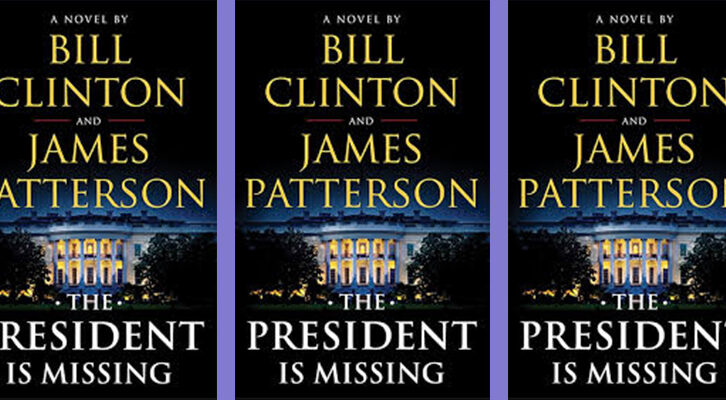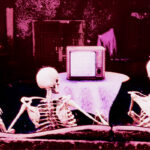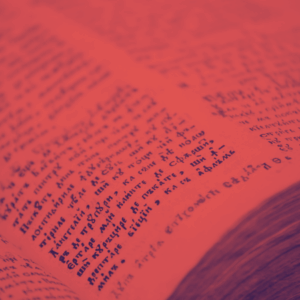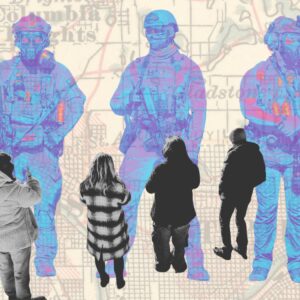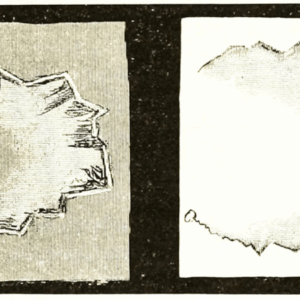
Has Imbolo Mbue Written the Great American Novel?
How an Unknown Cameroonian Novelist Followed in the Footsteps of Jonathan Franzen
I first heard about Imbolo Mbue’s Behold the Dreamers in 2014, when it was a book manuscript called The Longings of Jende Jonga: in 2014, the news was that Random House had bought the manuscript for seven-figures and in 2015, the story was that the movie rights, too, had been sold. Long before any of us read it, this first novel by an unknown Cameroonian novelist was heavily anticipated, the big African novel of the season. Its stock was very high.
Now that the novel has been published, it would seem to have been a big success. It’s been reviewed and written up everywhere, interviews, profiles, the whole thing. NPR. Vox. NYT. WJR. Refinery 29. Entertainment Weekly. BuzzFeed. Christian Science Monitor. SFGate. Houston Chronicle. USA Today. OkayAfrica. The book has gotten a solid amount of non-US press, too, which tends to very precisely emphasize the American-ness of the story of the novel: an African immigrant working as chauffeur for a Lehman Brothers executive, as the housing bubble bursts and as Obama is inaugurated. And as virtually every review observes, the novel asks “Is the American Dream a Fantasy?”
Across most of this press, two stories get blurred together. There is the story of Jende Jonga, a Cameroonian immigrant who works on Wall Street as a chauffeur, the protagonist in a novel. And there is the story of Imbolo Mbue, a Cameroonian immigrant who wrote a novel about a chauffeur who works on Wall Street. These are not the same story, of course. But if Jende Jonga’s story asks whether the American dream is a fantasy, the story of Imbolo Mbue—the novelist who “won the literary lotto”—answers with a reality: an immigrant who triumphs by writing a novel.
When she first wrote the novel, after all, Mbue was in the depths of a very personal downturn, into her second year of post-recession unemployment. Having emigrated from Cameroon to go to college in the states, she spent years working “as a dental-office receptionist, a bank teller, a preschool secretary and a dishwasher… [selling] lingerie at Nordstrom and… vacuum cleaners door-to-door.” As the profile in the Wall Street Journal recounts:
“She put herself through a Masters program in education and psychology at Teachers College at Columbia University, one night course at a time. She got a job doing market research for a media company and planned to pursue a Ph.D. in education. In 2009, with the economy in a tailspin, she hesitated to give up her job to accept a spot in a doctoral program in California.”
“And then of course I lost my job,” she said.
These kinds of stories usually end in triumph, not layoffs. We don’t tend to tell the much more common story, in which working class immigrants stay where they are, working; the “only in America” story usually describes the humble background out of which some notable individual has risen. And so it is, in this case. Before any of us read the story of Jende Jonga—the chauffeur for a Lehman Brothers executive who loses his job in the downturn, and whose story does not end in the triumph of having written a novel—and before we read about Imbolo Mbue’s unemployment in the recession, the story we get is the story of how Imbolo Mbue spun unemployment into gold. Before we read a novel about disillusionment with the American dream, we read the story of the novel as her triumph.
To disentangle these stories, we can start with the name: though it was originally called The Longings of Jende Jonga, this title didn’t last. As Mbue told the Cameroonian literary journal Bakwa, over email, “Random House and I agreed that Behold the Dreamers is a far better title for the book.” But while this change makes a lot of sense in the necessarily crude terms of market research, it’s also a very different kind of title, which is worth flagging: replacing the African-sounding name of the novel’s protagonist with a much more US-resonant term like “dreamers” is the right choice if what you are trying to do is sell the novel in the United States. A novel about “The American Dream in the Age of Obama and Trump” is marketable, in the US, in ways that “The Longings of [African-name]” would not be. The word “dreamers” is charged, dripping with meaning; what, by contrast, is a “Jende Jonga”? If what you want is a novel that speaks to the zeitgeist—if as Sony tweeted, this is a novel that “arrives at just the right moment”—then the choice is obvious.
Yet building the novel up this way does some strange things to the book itself. To tell the story of the novelist’s success—to make her the protagonist of an Only in America story about an immigrant who won the lotto with a novel—not only requires the novel to succeed, but it frames its success in a very particular way. It must sell. It must not only be well-reviewed (as it already has been), but all the anticipatory praise must be borne out in the event itself, in the experience that readers have with the book. They must buy the book, read it, and say: “Yes! This novel lived up to the hype.”
The bubble, in short, must not burst.
* * *
What does it do to a novel to become too big to fail?
The publisher of Behold the Dreamers, Penguin Random House, is one of the “Big Five” publishers, and because they’ve bet so heavily on this novel—having wheeled out all of the usual words and phrases to place it as a commodity in the hands of book buyers and make sure its publication is an event—the event of its publication has already become a self-fulfilling prophecy. As the story of the author’s own success, how can the book do anything but succeed? You’ll have seen the hype long before you’ve read a word of the book itself, and that triumph will frame how you recognize and enjoy what you are reading.
For one thing, if the first story that was told about this book was its huge financial success, then it can fail if it doesn’t succeed in market terms. Or, the novel can be judged and found wanting for selling the wrong way: Tope Folarin, for example, used her novel as an exemplar of the kind of “accessible” writing that frustrates him about contemporary African fiction. And a downside to winning “the literary lotto,” is that you get saddled with a blurb like Jonathan Franzen’s, who declares that:
“Imbolo Mbue would be a formidable storyteller anywhere, in any language. It’s our good luck that she and her stories are American.”
I don’t know if this blurb will sell books, but it’s a disastrous pair of sentences. In brief: the issue of language is a total non sequitur (Cameroonians speak French and other languages—her protagonists, for example, are sometimes described as speaking Bakweri—this novel was written in English), and the leap from “any language” to “our” good luck that she is “American” takes the nonsensical and makes it wrong-headed: “American” is not a language nor would her being American mean we can’t read her stories. And why “stories”? She wrote a novel, after all.
But the claim that “she and her stories are American” might be the absolute worst and most misleading way to describe a novel that not only concerns immigration and its discontents, but which is deeply ambivalent about the prospect of being American. And this is where the hype positively misleads you about what this novel is. If the story of the novel’s publication is a story of triumph, the novel itself is not: the longings of Jende Jonga are complicated and fraught and almost totally lacking in the kind of clarity provided by the nationalist clichés that bring the novel to the market. To flatten this novel into an American success story is to miss the point of it in such a drastic way that I genuinely wonder whether Franzen finished the book.
* * *
How does this book end up with Jonathan Franzen’s blurb?
That’s an easy question to answer: they share an agent. And were it not for the “Great American Novelist” role that Jonathan Franzen sometimes plays in the American literary economy—thank you, Time Magazine–I wouldn’t fixate on something as silly as a silly blurb. But why do the two of them share an agent? Here is where it starts to get a bit more interesting: Imbolo Mbue wanted Jonathan Franzen’s agent because her ambitions for her novel were shaped and framed by his accomplishments.
As she explained in an interview, “One of the novels I loved a lot from Oprah’s Book Club was Jonathan Franzen’s The Corrections”:
So when I was thinking about agents to represent me, one of the agents I wanted to represent me was Jonathan Franzen’s agent. Very ambitious, I know! (laughs) But why not? So I sent an email, and then another email, and then I started stalking her. I stalked her for almost three years, and finally she said ‘okay I will represent you.’ It wasn’t that easy, but finally she agreed to represent me. And there were many, many more re-writes of the novel, and the end result is the novel called Behold the Dreamers.
The irony of discovering Jonathan Franzen through Oprah’s Book Club is wonderful, but let’s take a moment and contemplate the Franzen-shaped conception of the Great American Novel that we are seeing here: as an “ambitious” writer, her dream was shaped by reading The Corrections, and was expressed by acquiring his agent and getting published by a Big Five publishing company, for seven figures.
In this sense, the hype is not external to the novel, not some false packaging we have to tear away before we get to the actual real authentic thing itself. An agent helps shape the novel long before it’s published, and an anticipation of the market helps shape a novel before it’s written; not only are books written to be read, but they are written in full knowledge and anticipation of how they will be read. As Mbue put it, Jonathan Franzen’s The Corrections “taught me a lot about the art of storytelling”:
Years after I read this novel about a dysfunctional American family, I still remember how awed I was by the sharp dialogue and the complexity of the characters. I also remember laughing hard at times, and shaking my head at other times, stunned by a plot which took me from one emotion to the other.
I don’t think it’s a coincidence that Mbue is, as Time described Franzen as being, “a devotee of the wide-shot, the all-embracing, way-we-live-now novel,” nor is it a coincidence that Behold the Dreamers is structured by a market correction. Franzen’s title comes from the economic boom of the 1990s proving to be a mirage (as Enid recalls in the eponymous final chapter):
The correction, when it finally came, was not an overnight bursting of a bubble but a much more gentle let-down, a year-long leakage of value from key financial markets, a contradiction too gradual to generate headlines and too predictable to seriously hurt anybody but fools and the working poor.
Though it’s about a different macro-economic “correction,” Behold the Dreamers shows us a bubble bursting that transforming a family’s sense of itself and place in the world. As in Franzen’s novel, the collapse of economic fictions which the world cannot sustain produce a shocking discovery about what is real. And as Franzen said of The Corrections, but could equally have said of Behold the Dreamers: “The most important corrections of the book are the sudden impingements of truth or reality on characters who are expending ever larger sums of energy on self-deception or denial.”
* * *
The two novels are also very different. Franzen’s use of the white Midwestern family as stand-in for the American dream can make America seem very small, insular, and isolated (it is no surprise when Franzen laments that he doesn’t “have very many black friends.”) But Behold the Dreamers is about the pseudo-familial relations between rich white people and their immigrant servants, the forced intimacy that obtains between a Lehman Brothers banker and his chauffeur, between their wives and children, and between a nation of haves and have-nots that is increasingly bound together by sharply global class divisions. In Franzen’s novel, the deflation of the tech-bubble signified in terms of a very 20th-century (white) American dream, embodied by the failing family of a railroad magnate: how the west was won is how it now is being lost.
For Mbue, by contrast, the 2008 collapse of Lehman Brothers is significant because of the symbolic promise of a black president of America, the possibility that the son of an African immigrant could become president. As Jende Jonga puts it in an early passage, explaining to his employer why America is Great:
Look at Obama, sir. Who is his mother? Who is his father? They are not big people in the government… And look at Obama today. The man is a black man with no father or mother, trying to be president over a country!
This is Jenda Jonga’s longing at the start of the novel, and his appeal: look at Obama and behold the dream. If you finish it, Behold the Dreamers turns out to be the story of how the air is let out of this overstuffed ambition; it specifically concerns the “fools and the working poor” that The Corrections did not, the people who actually experience the corrections of economic meltdown. In this way, it’s a correction of The Corrections. And if Franzen’s book was all about going home again, or not being able to (even though you have to), Behold the Dreamers takes us to a place that Franzen’s version of Thomas Wolfe wouldn’t dream about, a home outside of the American dream, and about the implacable tide that draws a family back to it. Like Franzen’s, Behold the Dreamers is a novel that begins in a dream, and Franzen himself is a nice figure for what that dream is. But Mbue’s novel ends by waking up from it.
* * *
Is this book, then, an American novel? Yes! But is it also a very African book.
On the first page, Jende Jonga is described as “a man of grand accomplishments,” and we should hear this echo to the opening to Chinua Achebe’s Things Fall Apart here. But while Okonkwo’s “fame rested on solid personal achievements,” in the grandness of Jende Jonga’s accomplishments, all that is solid has melted into air. If Okonkwo was a wrestler, a farmer, a father, and a warrior, he had material evidence of that: his strength, his yams, his children, and the skulls of his defeated enemies all testified to the power of his labor, and so, the stories of his accomplishments spread “like a bushfire in the harmattan” (the hot dry air that blows south off the Sahara).
By contrast, Jende Jonga’s career is nothing but hot air: everything he is, in America, is a function of self-hype, of creatively finessing his African past and re-narrating it as the story of an American dream: he gets a job as a chauffeur by telling his employer the story the employer wants to hear and he gets a work visa by exaggerating beyond recognition the conditions that forced him to leave Cameroon.
More than that, Jende Jonga tells himself a variety of stories about his work, haplessly posing as a Manhattan big shot by wearing a brightly colored suit and carrying a briefcase; his job as a chauffeur, he believes, is “working on Wall Street.” But if Okonkwo was a tower of masculinity—an Iroko tree tragically felled by colonialism—then in pretensions like these, Jende Jonga is a figure of comic pathos, sympathetically deluded. Okonkwo’s tragedy was that the world changed around him, and he refused to bend; Jende Jonga’s is that the world he thought he was living in never existed in the first place. His things fell apart before he was born.
At the start of the novel, Africa is given as a place to flee, an abjection to be abjured. When his employer idly asks him what his home village is like, he is damningly unequivocal:
Everyone wants to come to America, sir. Everyone. To be in this country, sir. To live in this country. Ah! It is the greatest thing in the world… my country is no good. It is nothing like America. I stay in my country, I would have become nothing. I would have remained nothing. My son will grow up and remain poor like me, just like I was poor like my father. But in America, sir? I can become something. I can even become a respectable man. My son can be a respectable man.
His dream of America, then, is this very particular story of Obama: the dream that the son of an African might cease to be African. Instead of becoming nothing—instead of being reduced to being a function of his own lies—he might become something.
The extent to which Jende Jonga buys into this version of the American dream—America as Not-Africa—makes the novel, frankly, a bit racist. To put it bluntly, it confirms and displays an uncomfortably large number of stereotypes about Africa and Africans. If you make a list of words to describe Jende Jonga, you get an image of the African as: simple, good, hopeless, ignorant, confused, earnest, happy, selfless, patriarchal, incurious, faithful, dependable, and dependent. If he is sympathetic, the depth of his pathos is matched and facilitated by his shallowness of intellect; his American dream is always, also, his totalizing self-negation as African. He is many things, but one of them is a figure of Fanonian abjection; if his is the story of the American dream, it is also the story of African self-hate.
To be clear: Jende Jonga and his wife, Neni, are rendered with sympathy and warmth, and it is their lives which concern us as readers. But they are also caricatures of the good-hearted, ignorant immigrant. Their misconceptions about America are played throughout for light comedy—as when Neni describes lingerie as the American version of love potions—and the many small confusions and humiliations which form Jende’s life as a rich man’s chauffeur never result in anything approaching resentment or hostility. His love for his employer—and the depth of his gratitude and satisfaction—is unsettling.
But maybe it’s meant to be. I don’t know. A caricature can be warm-hearted, coming from a place of sympathy and love. It can also be minstrelsy. And this is the question, the problem with the novel: is it “problematic,” or does it expose the problem with the American dream, and its exceptionalist presumptions? Without Obama’s claim that “in no other country on earth is my story even possible”—a line in his 2004 convention speech which panders to soft racism and xenophobia—would his presidency have been thinkable?
To believe in that American story—as Jende Jonga wholeheartedly does, at the beginning of the novel—one must accept its racist premise: to become a person with an American future, Jende Jonga must scrub away his African past. He must insist that America is the promised land, for which he would give anything; Africa is the bondage in Egypt from which his family must flee. And so he does.
But this is not where the novel ends. What saves it, for me, is the distance Behold the Dreamers eventually creates between its subjects and their dreams, between the dream they think they are living and the lives they ultimately wake up to. It does this through a simple act of narrative framing: we never leave the minds of the novel’s African protagonists. For all its apparent fascination with a rich, white, American-born family—as our protagonists eavesdrop and peer into the lives they aspire to live—the book never leaves the perspective of their servants, never sees the one percent except from the perspective of their employees; for all the hyper-American signifiers that get thrown around—immigration, the American dream, even New York City itself—the novel only ever sees America through their eyes. We never see the dreamers through America’s.
This is important. Who is laughing clarifies who this comedy of manners and errors is laughing with. There is gentle mockery, here, of their pretensions and misconceptions—as when Neni aspires, someday, to purchase a fine suit from “a fine white people store” like Target—but the naiveté of their aspirations to nouveau riches is also their innocent belief in America itself. And the novel ultimately mocks both beliefs as naïve. Imbolo Mbue became an American success story when she wrote this novel, but her novel never tells this story. Jende Jonga’s son will not grow up to be Obama.
Instead, the novel uses the destruction of a family to represent the failure of the American dream. But the family that splinters is not Jende Jonga’s: while the lives of the one percent fall apart, Jende Jonga’s story continues even after its American chapter comes to a conclusion. And so, this novel turns out to be more than the Franzen Redux that it might initially seem to be: the American family story—the Franzen novel on whose ashes Behold the Dreamers is built—ends with a kind of certainty, with the confidence of declaring, even in tragedy, that a correction has occurred. But life is about irresolution, about questions, about change. And like the Yeats poem which gave Things Fall Apart its title, this novel ends with a question mark (literally) and with the question of what is to come next. Behold the Dreamers is about the consequences of dreaming too long, too recklessly, and too credulously, but even more, it’s about waking up from that dream, and living, about the empty space that follows a story that runs out of gas. There might be no second acts in American lives—as F. Scott Fitzgerald once claimed—but if so, it’s the brittle resistance to change and the refusal of the new that brings the whole thing crashing down. In the warm comedy of an immigrant family, we find a different story, a story that in its very irresolution, continues to have a future.
Aaron Bady
Aaron Bady is a post-doctoral fellow at the University of Texas, teaching African literature. He is an editor at The New Inquiry.











